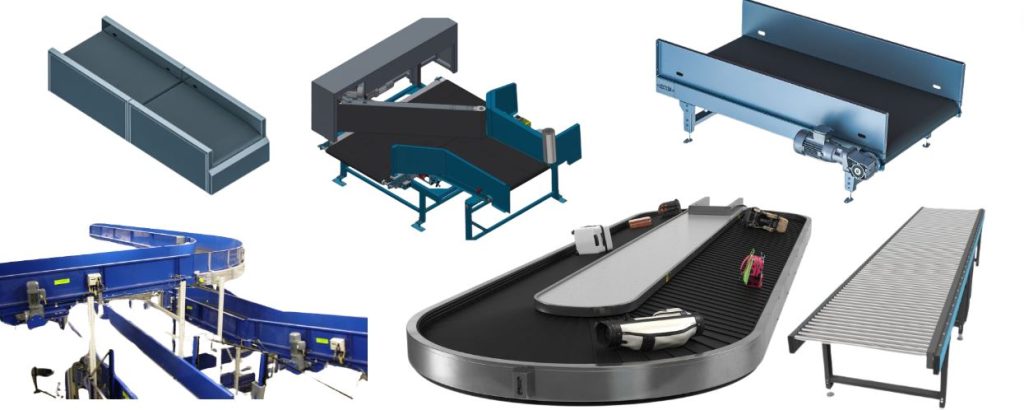Airport Baggage Handling Systems (BHS) in China in 2024
Baggage handling systems (BHS) play a pivotal role in the efficiency and smooth operation of airports worldwide. In China, a rapidly growing aviation industry demands innovative solutions to cater to the increasing volume of passengers and cargo. Let’s delve into the intricacies of BHS in China, exploring the technologies, trends, case studies, and the impact on passenger experience and airport logistics.
China’s bustling airports rely on sophisticated baggage handling systems to manage the flow of luggage efficiently. These systems encompass a range of technologies, from conveyor belt systems to automated sorting and screening processes. BHS manufacturers in China are at the forefront of developing cutting-edge solutions to meet the demands of modern airports.

Types of BHS Systems
In China, BHS systems come in various configurations, each tailored to the specific needs of the airport. Some common types include:
- In-line Systems: These systems integrate baggage screening and sorting into a single process, streamlining operations and enhancing security.
- Sortation Systems: Utilizing advanced sorting technology, these systems ensure that luggage reaches its designated destination swiftly and accurately.
Technology Trends
The evolution of BHS technology is driven by trends such as automation and artificial intelligence (AI). In China, airports are embracing automation to increase efficiency and reduce reliance on manual processes. AI-powered algorithms enhance baggage tracking and screening, further bolstering security measures.
Case Studies in China
Several airports in China serve as prime examples of effective BHS implementation. For instance, Beijing Capital International Airport, one of the busiest airports globally, boasts a state-of-the-art baggage handling system that efficiently manages the high volume of passengers and cargo.
Enhancing Passenger Experience and Airport Logistics
Efficient baggage handling not only contributes to airport operations but also significantly impacts the passenger experience. Optimizing BHS leads to reduced baggage claim wait times, ensuring a seamless journey for travelers. Additionally, stringent security screening processes enhance safety and compliance with international aviation standards.
BHS Components
Key components of a BHS include:
- Conveyor Belt Systems: These form the backbone of baggage transportation within the airport, facilitating the movement of luggage from check-in to the aircraft.
- Baggage Sorting Systems: Utilizing advanced technology such as tilt trays and sortation technology, these systems ensure accurate routing of luggage to the appropriate destination.
BHS Software
Software solutions play a crucial role in managing and monitoring BHS operations. BHS software is tailored to the specific requirements of each airport, providing real-time insights into baggage tracking, throughput rates, and maintenance schedules.
Baggage Security Screening
Ensuring the safety of passengers and aircraft is paramount in the aviation industry. BHS in China incorporates advanced security screening technologies to detect prohibited items and potential threats accurately.
Future Outlook and Maintenance
Aviation industry continues to expand, the evolution of BHS is inevitable. Future developments may include enhancements in throughput rates, integration of Internet of Things (IoT) technology for predictive maintenance, and further automation to streamline operations.

IATA Baggage Standards
Adherence to International Air Transport Association (IATA) baggage standards is crucial for airports in China to ensure compliance with global regulations and enhance interoperability with airlines worldwide.
BHS Maintenance
Regular maintenance is essential to keep BHS systems operating at peak efficiency. Airports implement proactive maintenance strategies to minimize downtime and ensure uninterrupted baggage handling operations.
All in all
Baggage handling systems are the unsung heroes of the aviation industry, facilitating the seamless movement of luggage and ensuring a positive passenger experience. The rapid growth of air travel necessitates continuous innovation in BHS technology and practices. By embracing automation, AI, and stringent security measures, Chinese airports are poised to set new standards in airport logistics and passenger satisfaction.
FAQs
What are the primary components of a BHS?
Baggage handling systems (BHS) in China typically consist of conveyor belt systems, baggage sorting technology, and advanced security screening equipment to ensure efficient and secure luggage processing at airports.
How do BHS technologies enhance passenger experience in Chinese airports?
BHS technologies in China streamline baggage handling processes, leading to shorter wait times at baggage claim areas and improved overall passenger satisfaction. Advanced systems ensure accurate tracking and timely delivery of luggage to travelers.
What measures are taken to maintain the reliability of BHS systems in China?
Regular maintenance protocols are implemented to uphold the reliability of BHS systems in China. This includes proactive inspections, software updates, and adherence to international standards to minimize downtime and ensure uninterrupted baggage handling operations at airports.